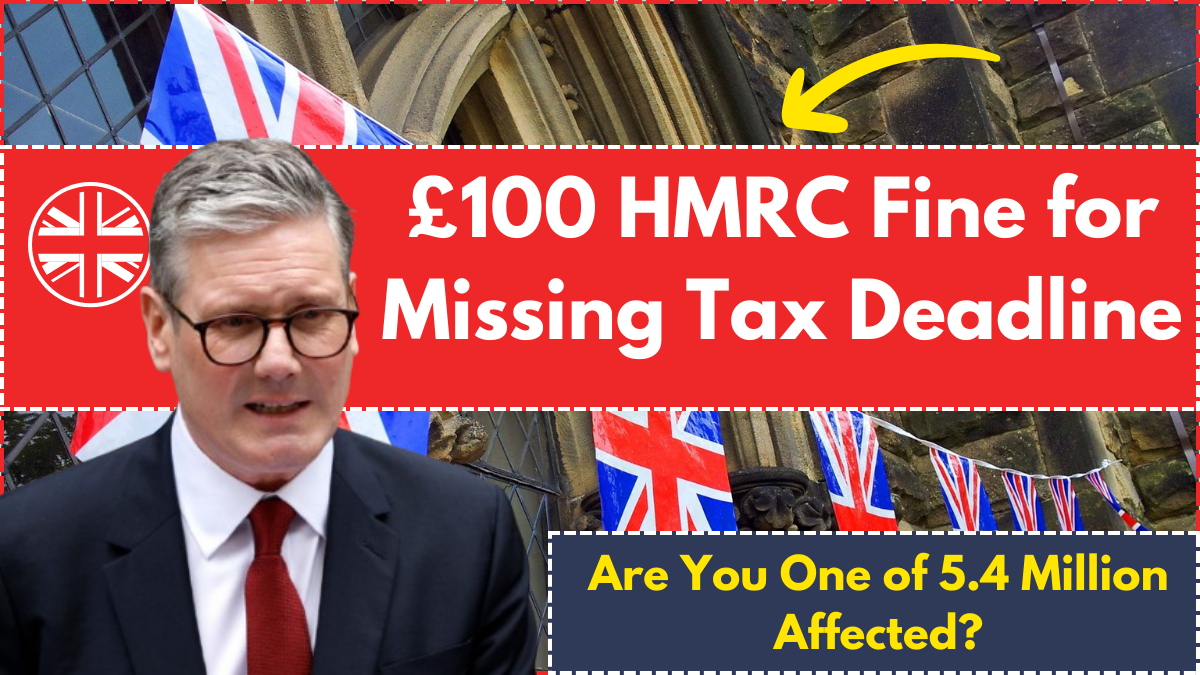Missing the January 31, 2025, Self-Assessment tax deadline can result in an automatic £100 penalty, even if no tax is owed. With over 5.4 million taxpayers yet to file, understanding the process, penalties, and best practices for timely submission is essential. This guide will equip you with all the necessary information to avoid fines and ensure compliance with HMRC regulations.

Understanding the HMRC Late Filing Penalty
The HMRC imposes penalties on individuals who fail to submit their Self-Assessment tax return by the due date. The initial fine is set at £100, but additional penalties accrue if the delay continues.
Breakdown of Late Filing Penalties
| Duration of Delay | Penalty Amount |
|---|---|
| Missed Deadline (≥ February 1, 2025) | Automatic £100 fine |
| 3 Months Late | £10 per day for up to 90 days (maximum £900) |
| 6 Months Late | 5% of the tax owed or £300, whichever is greater |
| 12 Months Late | Additional 5% of the tax owed or £300, whichever is greater |
| Unpaid Tax (From February 1, 2025) | Interest charged daily |
Missing the deadline can quickly escalate into a costly mistake. Staying informed and proactive is crucial to avoiding these financial burdens.
Who Needs to File a Self-Assessment Tax Return?
Not everyone needs to file a Self-Assessment tax return, but if any of the following apply to you, submission is mandatory:
- Self-Employed Individuals: Freelancers, sole traders, and contractors must report their income.
- Property Owners: Those earning rental income must declare it.
- High Earners: Individuals with an annual income exceeding £100,000 or those earning over £50,000 while claiming Child Benefit.
- Capital Gains: If you sold property, stocks, or other taxable assets, you must report capital gains.
- Savings and Investments: Those exceeding tax-free savings or dividend allowances need to file.
- Foreign Income Recipients: Earnings from abroad, even if taxed elsewhere, must be declared.
Failing to meet your filing obligations could result in penalties and interest on unpaid tax.
How to Avoid the HMRC Late Filing Penalty
1. Submit Your Return Before January 31, 2025
The best way to steer clear of penalties is to file before the deadline. HMRC provides an online platform for easy submission.
2. File an Estimated Return if Documents Are Missing
If you lack specific financial records, submit an estimated return and update it later. This prevents unnecessary fines.
3. Pay Your Tax Bill Promptly
Filing on time but failing to pay your dues leads to interest and additional penalties. Ensure full payment is made by January 31, 2025.
4. Request an Extension for Exceptional Circumstances
If personal emergencies such as illness or bereavement prevent timely filing, contact HMRC to request an extension or appeal penalties.
5. Maintain Digital Records for Efficiency
Using tools like QuickBooks, Xero, or HMRC-approved apps simplifies tax calculations and reduces filing errors.
What Happens If You Miss the Deadline?
Missing the tax return deadline has financial and legal implications:
- Immediate £100 Penalty: Applied automatically upon missing the deadline.
- Daily Fines After 3 Months: £10 per day for up to 90 days.
- Larger Penalties at 6 and 12 Months: These can exceed £600 if tax is owed.
- Interest Accumulation: Any unpaid tax begins accruing interest from February 1, 2025.
It is crucial to act swiftly if the deadline is missed to minimize these financial consequences.
How to File Your Self-Assessment Tax Return Online
Filing online is the most efficient method. Follow these steps to complete your return:
Step 1: Register for Self-Assessment
If this is your first time filing, register with HMRC to obtain a Unique Taxpayer Reference (UTR) and set up a Government Gateway account.
Step 2: Gather Necessary Documents
Prepare the following before filing:
- Employment income details
- Self-employment earnings
- Rental income records
- Bank interest and investment earnings
- Capital gains information
- Allowable tax-deductible expenses
Step 3: Access Your HMRC Account
Log into your Government Gateway account and navigate to the Self-Assessment section.
Step 4: Complete Your Tax Return
Follow the step-by-step online instructions to accurately report income, expenses, and deductions.
Step 5: Submit and Pay Any Tax Owed
Ensure submission before midnight on January 31, 2025, and make full payment to avoid penalties and interest.
Final Thoughts
Filing your Self-Assessment tax return on time is crucial to avoiding unnecessary penalties and interest charges. By understanding HMRC requirements, using digital tools for record-keeping, and proactively submitting your return, you can ensure compliance and financial peace of mind. Don’t wait until the last minute—act now to avoid costly mistakes!
Frequently Asked Questions (FAQs)
1. What happens if I miss the Self-Assessment deadline but owe no tax?
Even if no tax is owed, you will still receive the automatic £100 penalty for late filing. Avoid this by submitting a zero-tax return before the deadline.
2. Can I appeal a penalty if I have a valid reason for missing the deadline?
Yes. HMRC allows appeals for genuine emergencies such as serious illness or family bereavement. You must provide evidence to support your claim.
3. How do I check if I need to file a tax return?
Use HMRC’s online tool or consult an accountant to determine if Self-Assessment applies to you.
4. What payment options are available for tax bills?
You can pay online via bank transfer, debit/credit card, or set up a payment plan if you are unable to pay in full immediately.
5. Will late payments affect my credit score?
While HMRC does not report to credit agencies, severe delays could lead to debt collection actions that may impact your credit rating.
For More Information Click Here
Akesh is a furniture expert with years of experience in design and craftsmanship. Specializing in sustainable materials, he shares his expertise to help people create stylish and functional living spaces.
